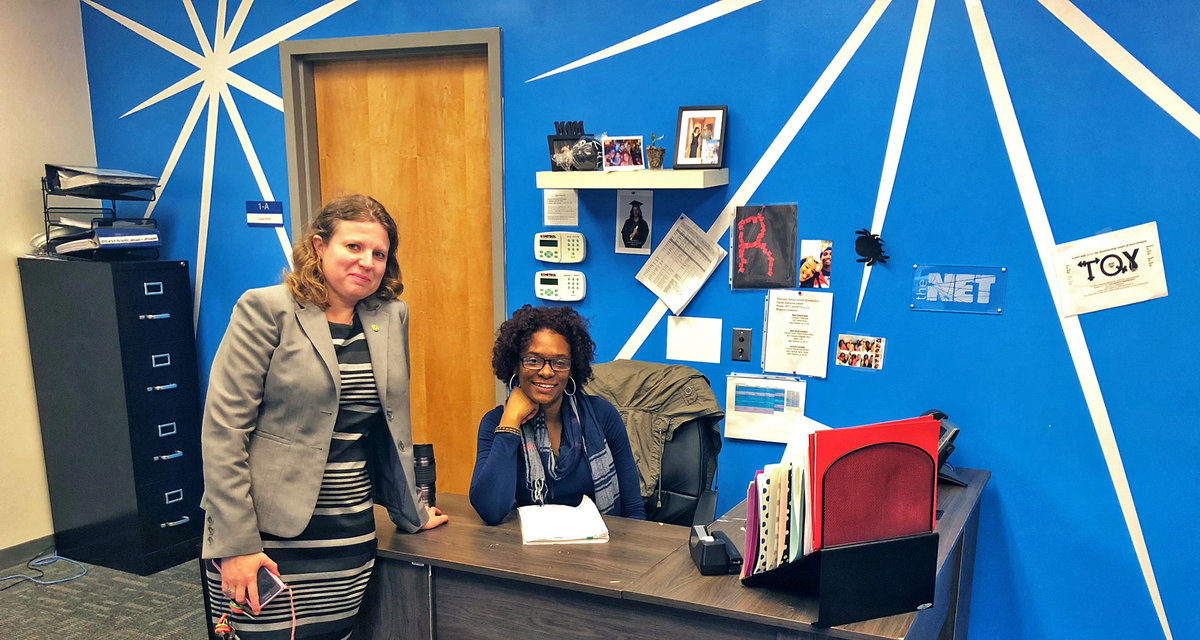In a New Orleans school, improving outcomes one student at a time

By Eva Fedderly
“How are you, Miss Elizabeth?” A group of three young men hold the door open and wait for their principal before they enter the nondescript building.
School leader Elizabeth Ostberg has earned the respect of students – and educators – in Louisiana for the approach she’s championed since hurricane Katrina hit more than a decade ago.
In August, Ms. Ostberg opened her second New Orleans charter school, The NET: Gentilly, as a way to put students who’ve been expelled, dropped out, or are at risk of dropping out, back on track. The enrollment waitlist and desire to keep class sizes small were her main motivations for not adding more seats at the original sister campus, The NET: Central City.
The expansion is one indication of progress in a city with a complex, slowly improving education system. As of July 1, the remaining schools will transition from the authority of the state-run Recovery School District back to the Orleans Parish School Board. The move reflects demonstrated progress from schools and that the district has enough of a foundation to manage itself on a local level.
“The NET is a critical part of the entire system as it moves ahead,” says Kunjan Narechania, CEO of the Recovery School District. “Elizabeth has done a really thoughtful job with students who are over-age, [and] under-credited … so they can thrive.”
When Ostberg arrived in the wake of Katrina in 2005, the city was in crisis mode. The school district was going bankrupt and schools were failing. The city had tossed its public school program, ranked among the worst in the United States, and traded it in for the Recovery School District, made up of more than 80 charter schools.
The Harvard grad immersed herself in the education system, then recruited community members and teachers to commit four years to researching best practices of alternative schools around the nation. This led to the holistic model Ostberg implemented in 2012 when she opened her first school. At the time, there was only one other alternative school in New Orleans.
“Many young people continue to struggle with issues that are greater than traditional models can support,” says Ostberg, who notes she has learned a lot since opening her first school, particularly about her students’ crises. “It pushes us to improve our trauma-informed practices and commit more deeply to our restorative practices.”
Both the Orleans Parish School Board and the Louisiana Department of Education describe The NET as one of the state’s best alternative schools. Two to three schools visit The NET each year to study best practices. The model is reflective of where the Department of Education wants Louisiana schools to be in terms of services and care, according to Katie Barras, the agency’s education program consultant.
“She’s built a program that assists the student as a whole,” says Ms. Barras. “She’s an exemplar in reengaging students.”
Most of Ostberg’s students have been diagnosed with trauma or post-traumatic stress disorder because of violence, extreme poverty, natural disasters, or family issues. The school has lost several students to gun violence. All students receive free or reduced lunch, a national measure of poverty, and range in age from 15 to 21.